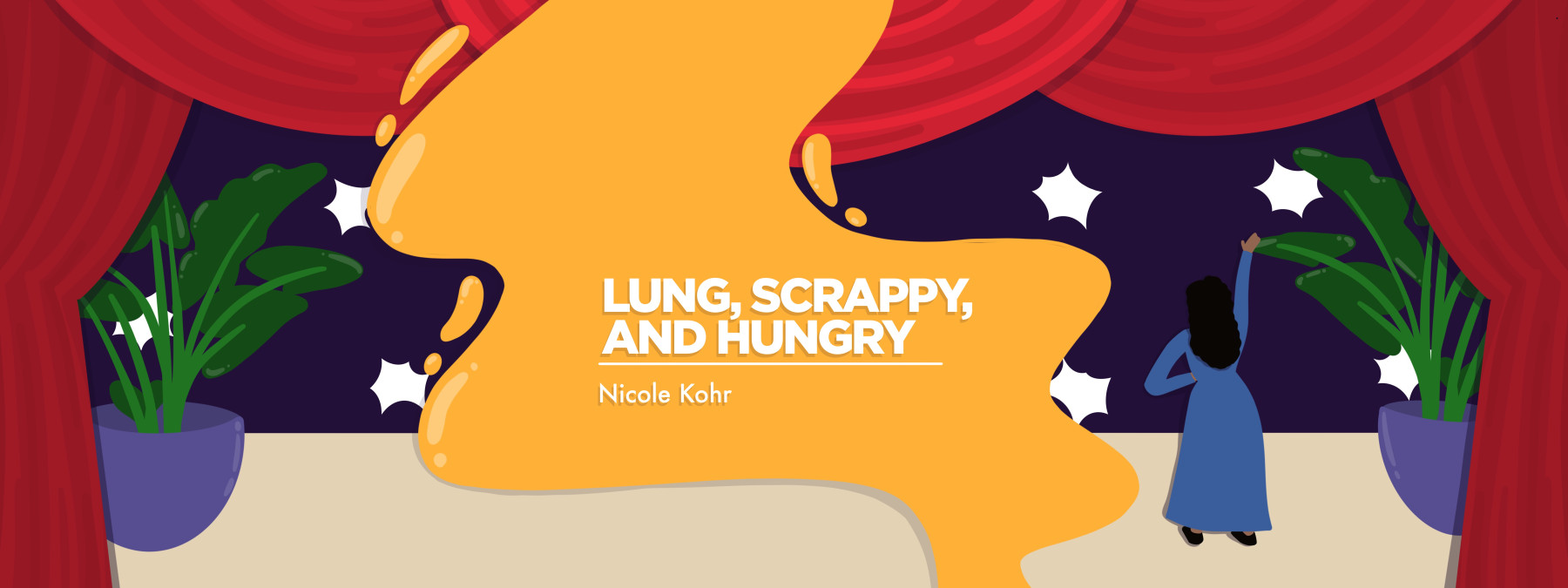‘Schadenfreude’: Experiencing Pain and Solidarity
Written by |

I became aware of the word schadenfreude during my first viewing of “Avenue Q” on Broadway. In the show, two characters discussed how one person’s pain could make another feel happy. As a person who’s often in pain, the concept startled me. The lyrics went on, “Making me feel glad/ That I’m not you!”
After reflecting on this concept, I realized that my journey with cystic fibrosis (CF) has opened many pathways to experiencing schadenfreude.
Pain management
I can’t remember a time when I wasn’t in pain. It always felt like someone was squeezing my fragile lungs with their bare hands. My brittle bones would snap, crackle, and pop thanks to my increasingly worse osteoporosis, and my sinus infections would result in daily migraines.
To suppress the pain, I would take two Tylenol in the morning and the occasional Aleve. I did this as early as 13 years old, and the number of pills that I needed grew. The routine made the pain bearable and my goals possible, and it persisted all the way up until my bilateral lung transplant in June 2019.
During my recovery, I decided I didn’t want any more pain medication. My body finally had the opportunity to heal, and I didn’t want my relationship with pain medication to get in the way of that. Unfortunately, my pain management, chronic dehydration, and blood sugar had already done a number on my kidneys. This opened the door to my first experience with schadenfreude: a lack of pain medication.
Giving schadenfreude
Many adults use the phrase “Someone out there has it worse than you” to force children out of their own pity party. Turns out, I’m often the someone.
My mom had to watch me squeeze my pillow as I endured anesthesia-less bronchoscopies and other misfortunes. My husband would crouch down next to me as I clutched my shins and breathed deeply through my teeth after a short walk. The detox was short-lived, but there was a lesson to be learned: “Don’t abuse pain medication like Nicole because the result looks awful.”
Admittedly, there’s something thrilling about winning the my-horse-is-sicker-than-your-horse competition. It means I’m overcome more than most people — but I’m also a very happy and fulfilled person. Therefore, I don’t know how I feel being a walking billboard for unfortunate circumstances.
When my family and I were adjusting to my newfound oxygen dependence in 2018, we had to plan everything out. A simple trip to the mall required two spare oxygen tanks, two backpacks with emergency items, a cooler with drinks, and a ton of patience. Most of our holidays were spent in the hospital. All my mom’s paid time off was used for doctors’ appointments instead of the lengthy beach vacation that she deserved, and we lived a numb, robotic life for years. Looking back, I feel bad for our past selves and thankful for the present.
Receiving schadenfreude
Benefiting from schadenfreude has been bittersweet. I remember the moment when masks became mandated. Everyone around me panicked, but I smiled, and I still feel guilt-ridden about it.
I am immunosuppressed due to my cystic fibrosis and transplantation, so I must wear a mask in public for the rest of my life. Walking into the grocery store pre-pandemic with a mask was embarrassing. It didn’t matter that my mask was pastel and nonthreatening. I was someone to keep an eye on, and people would stare. Having company made me feel less alienated. Like when a pregnant woman in labor squeezes her husband’s hand so that he also feels pain, there’s something comforting about solidarity.
Getting wheeled past the long line of people at an amusement park ride just because I’m disabled is fun. Part of me wants to wave at the crowd like I’m a deserving celebrity. The other half wants to cover my face because I don’t even look disabled on the outside. Why should I be moved to the front of the line?
The same goes for handicapped-accessible parking. My college friends didn’t understand why I had a disability placard, or why I was allowed to leave class five minutes early with no explanation. Apparently, there are some benefits to being disabled.
In the end, schadenfreude may not be the best example of our society’s empathy, but it’s a perfectly natural coping mechanism. As they say in the show:
“The world needs people like you and me/ Who’ve been knocked around by fate./ ‘Cause when people see us/ They don’t want to be us/ And that makes them feel great./ We provide a vital service to society!/ You and me! Schadenfreude!/ Making the world a better place to be.”
Note: Cystic Fibrosis News Today is strictly a news and information website about the disease. It does not provide medical advice, diagnosis, or treatment. This content is not intended to be a substitute for professional medical advice, diagnosis, or treatment. Always seek the advice of your physician or other qualified health provider with any questions you may have regarding a medical condition. Never disregard professional medical advice or delay in seeking it because of something you have read on this website. The opinions expressed in this column are not those of Cystic Fibrosis News Today or its parent company, Bionews, and are intended to spark discussion about issues pertaining to cystic fibrosis.








Paul met Debbie
Great, we need more talks like this! Love it!
Schadenfreude is a German word, and the Dutch have the word Leedvermaak. Which would be literary translated Misery-fun. It is mostly only used on the passive side of the relation. So your idea of giving Schadenfreude is very original.
Cheers
Paul
Mary E Shreck
Another view into Supergirl's life, she has made such an impact on our family and tons of friends with her life's journey. We are so blessed having Nicole in our crazy family and so glad she and Jared definitely are a match made in heaven!